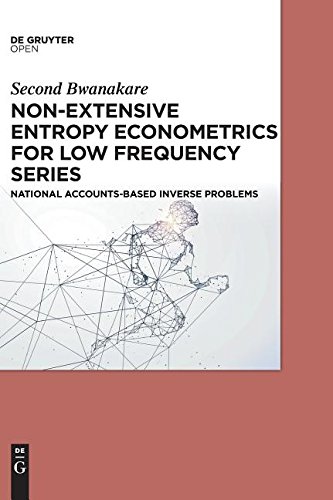
Non-Extensive Entropy Econometrics for Low Frequency Series
by Second Bwanakare
Publisher: De Gruyter Open 2017
ISBN-13: 9783110550443
Number of pages: 218
Description:
Non-extensive Entropy Econometrics for Low Frequency Series provides a new and robust power-law-based, non-extensive entropy econometrics approach to the economic modelling of ill-behaved inverse problems. Particular attention is paid to national account-based general equilibrium models known for their relative complexity.
Download or read it online for free here:
Download link
(multiple PDF files)
Similar books
 The Elements of Input-Output Analysis
The Elements of Input-Output Analysisby William H. Miernyk - Random House Inc
This volume is designed to give the reader an understanding of how the input-output system works; it is not a guide to the construction of an interindustry transactions table. Most of this book deals with a static, open input-output model.
(9993 views)
 Statistical Inference in Dynamic Economic Models
Statistical Inference in Dynamic Economic Modelsby Tjalling C. Koopmans - John Wiley & Sons
Quantitative economic study has a threefold basis: it is necessary to formulate economic hypotheses, to collect appropriate data, and to confront hypotheses with data. The latter task, statistical inference in economics, is discussed in this book.
(9976 views)
 Discrete Choice Methods with Simulation
Discrete Choice Methods with Simulationby Kenneth Train - Cambridge University Press
The book describes the new generation of discrete choice methods, focusing on the advances that are made possible by simulation. Researchers use these methods to examine the choices that consumers, households, firms, and other agents make.
(14554 views)
 Optimal Regulation: The Economic Theory of Natural Monopoly
Optimal Regulation: The Economic Theory of Natural Monopolyby Kenneth Train - The MIT Press
Optimal Regulation addresses the central issue of regulatory economics -- how to regulate firms in a way that induces them to produce and price 'optimally'. It synthesis an extensive theoretical literature on what constitutes optimality.
(11459 views)